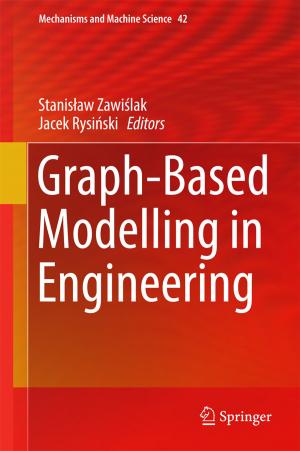Finite Volumes for Complex Applications VIII - Methods and Theoretical Aspects
FVCA 8, Lille, France, June 2017
Nonfiction, Science & Nature, Mathematics, Counting & Numeration, Science, Physics, Mechanics| Author: | ISBN: | 9783319573977 | |
| Publisher: | Springer International Publishing | Publication: | May 23, 2017 |
| Imprint: | Springer | Language: | English |
| Author: | |
| ISBN: | 9783319573977 |
| Publisher: | Springer International Publishing |
| Publication: | May 23, 2017 |
| Imprint: | Springer |
| Language: | English |
This first volume of the proceedings of the 8th conference on "Finite Volumes for Complex Applications" (Lille, June 2017) covers various topics including convergence and stability analysis, as well as investigations of these methods from the point of view of compatibility with physical principles. It collects together the focused invited papers comparing advanced numerical methods for Stokes and Navier–Stokes equations on a benchmark, as well as reviewed contributions from internationally leading researchers in the field of analysis of finite volume and related methods, offering a comprehensive overview of the state of the art in the field.
The finite volume method in its various forms is a space discretization technique for partial differential equations based on the fundamental physical principle of conservation, and recent decades have brought significant advances in the theoretical understanding of the method. Many finite volume methods preserve further qualitative or asy
mptotic properties, including maximum principles, dissipativity, monotone decay of free energy, and asymptotic stability. Due to these properties, finite volume methods belong to the wider class of compatible discretization methods, which preserve qualitative properties of continuous problems at the discrete level. This structural approach to the discretization of partial differential equations becomes particularly important for multiphysics and multiscale applications.
The book is a valuable resource for researchers, PhD and master’s level students in numerical analysis, scientific computing and related fields such as partial differential equations, as well as engineers working in numerical modeling and simulations.
This first volume of the proceedings of the 8th conference on "Finite Volumes for Complex Applications" (Lille, June 2017) covers various topics including convergence and stability analysis, as well as investigations of these methods from the point of view of compatibility with physical principles. It collects together the focused invited papers comparing advanced numerical methods for Stokes and Navier–Stokes equations on a benchmark, as well as reviewed contributions from internationally leading researchers in the field of analysis of finite volume and related methods, offering a comprehensive overview of the state of the art in the field.
The finite volume method in its various forms is a space discretization technique for partial differential equations based on the fundamental physical principle of conservation, and recent decades have brought significant advances in the theoretical understanding of the method. Many finite volume methods preserve further qualitative or asy
mptotic properties, including maximum principles, dissipativity, monotone decay of free energy, and asymptotic stability. Due to these properties, finite volume methods belong to the wider class of compatible discretization methods, which preserve qualitative properties of continuous problems at the discrete level. This structural approach to the discretization of partial differential equations becomes particularly important for multiphysics and multiscale applications.
The book is a valuable resource for researchers, PhD and master’s level students in numerical analysis, scientific computing and related fields such as partial differential equations, as well as engineers working in numerical modeling and simulations.















